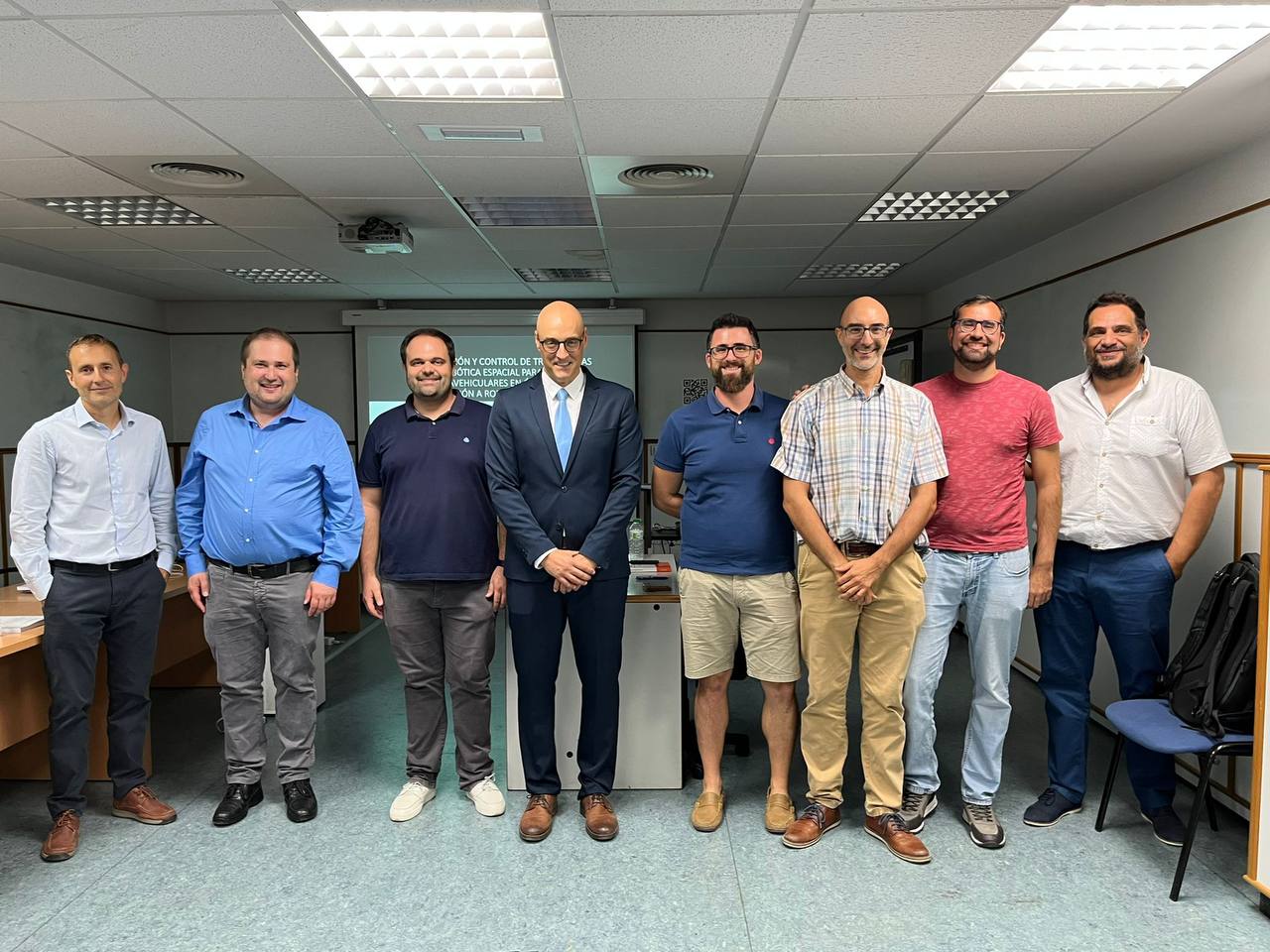A new Doctor in HURO
September 14, 2022

Today, September 14th, José Luis Ramón has defended his phD Thesis at the Hall of Grades I of the EPS. At HURO we cannot be more proud of our colleague, who has made a great effort to present a Thesis of excellent quality. Our most sincere congratulations!
Here is a summary of his Thesis:
Tittle: Planning and control of trajectories in space robotics for extravehicular tasks in orbit and its application to humanoid robots
Abstract: "The main objectives in the space exploration have change in the last years. Recently, the goal of this research was simply to be able to explore space, satellites, planets, etc. However, nowadays there are more specific objectives, such as the construction of private space stations to accommodate future tourists and other more ambitious and futuristic projects, such as establishing colonies on satellites and planets. Additionally, research projects such as the study of the Sun using spacecrafts or telescopes continue being proposed, the study of deepest space and its origins, and other studies and applications such as recycling in space, asteroid mining, etc. All these current and future missions cannot be understood without the use of robots. It is within this general scope that this Doctoral Thesis is proposed, with the purpose of proposing technologies for the control and guidance of robots in orbit that allow them to carry out the missions in which they are currently involved and in which, without a doubt, they will be in the near future.
For the implementation and simulation of the different algorithms and controllers proposed in the Thesis, a framework based on ROS called OnOrbitROS has been implemented. This framework extends the capabilities of ROS to allow the simulation of space robotic systems on orbit. After defining and validating this tool, different contributions have been made both for the planning and for the control of space robots on orbit. These contributions have been applied both to simple free-floating manipulators and to complex humanoid robots guided by using sensory feedback from cameras and force sensors.
A path planning algorithm for on orbit robots has been proposed that is able of automatically generate the movements that a robot must perform in order to reach a certain objective. This algorithm, based on optimization, will define the trajectories of the joints or the end effector of the robot. After the definition of the path planning algorithm, the Thesis proposes the definition of new controllers with the objective of tracking the defined trajectories. New controllers with different properties, applications and dynamic properties have been proposed, the results of which support their application in space robots. It is worth mention, for example, the definition of controllers based on optimization, controllers with visual and force feedback, controllers based on velocity, force or acceleration, etc. Throughout the Thesis, each of these controllers is exposed, their characteristics and applications are described, and their performance in performing typical tasks carried out by these robots on orbit is shown."
Human Robotics Group - University of Alicante
Contact us
-
Human Robotics
UA Polytechnic School 3
Physics, Systems Engineering and Signal Theory Department
University of Alicante
Ctra San Vicente del Raspeig s/n
San vicente del Raspeig
03690 Alicante, Spain. -
(+34) 965 903 400 Ext. 1094
-
huro@ua.es
-
Week Days : 09:00 – 18:00
Saturday, Sunday : Holiday




